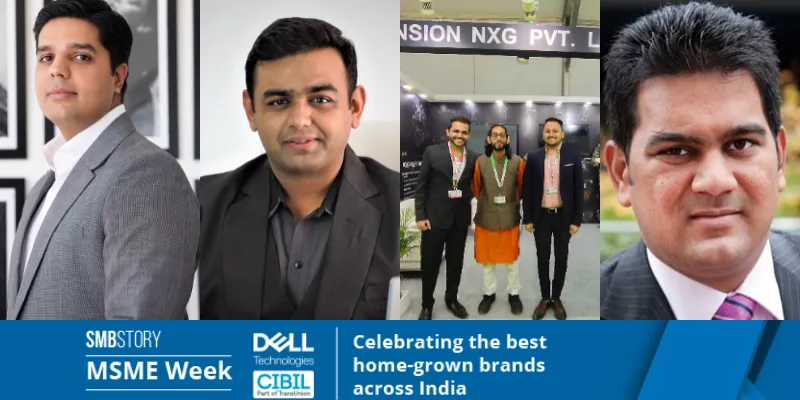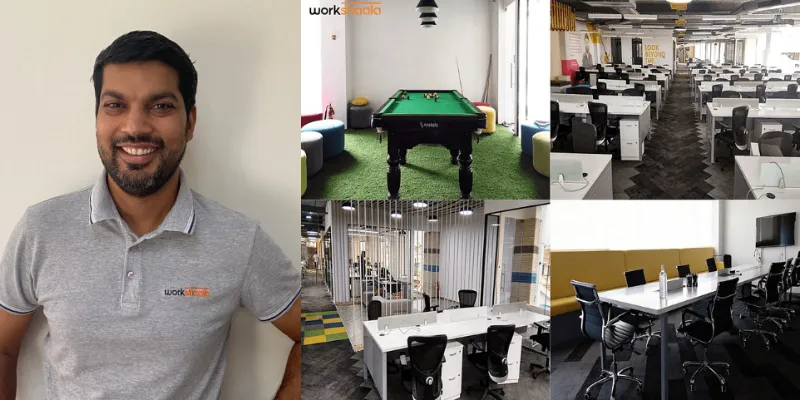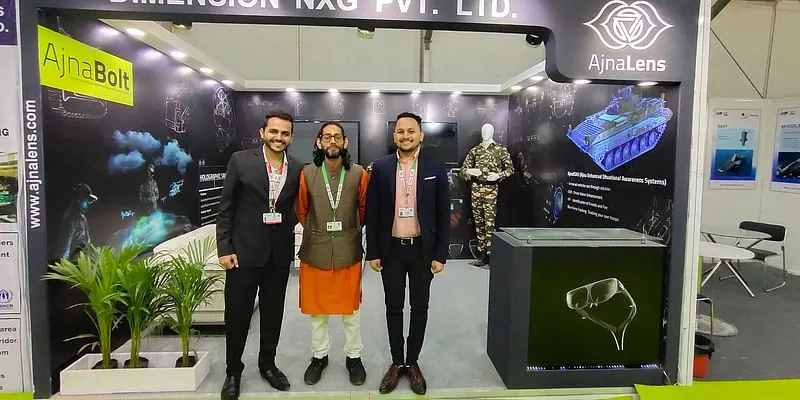These businesses found growth opportunities during COVID-19 pandemic, and innovated
SMBtory enlists five small, medium and large businesses that are changing their course and innovating to combat the impact of coronavirus in India.
The business ecosystem has survived many shocks in the last two decades. Starting from the dotcom bubble burst, the financial crisis of 2007-08, demonetisation, to the introduction of the Goods and Services Tax (GST) — these huddles brought some unique challenges and predicaments for the Indian companies. And, those who sustained such times, survived.

The current COVID-19 pandemic is one such event that is not ready to fade anytime soon. With the financial health of the economy brought to its knees, pivot and innovate seems to be the answer for many Indian businesses to survive such bleak times.
SMBtory enlists five small, medium and large businesses that are changing their course and innovating to combat the impact of coronavirus in India.

Ambud Sharma, CEO, Escaro Royale
Escaro Royale — a luxury Indian brand that offers handcrafted men’s footwear, bags, and accessories — has been using tech to revitalise an otherwise conventional business since its inception.
It is of little wonder how the brand was able to survive during the coronavirus pandemic which led to several businesses shutting down their operations.
The Delhi-based company launched in 2017 under its parent company Ligo Group, aims to establish itself as India’s first and largest extreme-luxury super-premium tech-driven brand for men.
Ambud Sharma, CEO of the company, says that the pandemic pushed him to think out of the box for raw materials, the supply for which was enormously disrupted.
He says, “COVID-19 has brought disruption in terms of supply chains, but we are not very affected because we don’t have any dead stock. However, since our raw materials come from Italy, Argentina, and Brazil (which are among the worst affected countries), we are in the process of coming up with alternatives. For instance, we came up with leather made up of peas and mushrooms because they contain high levels of cellulite and flexibility.”
S Chand Group

Himanshu Gupta (L) Managing Director and Vinay Sharma (R), Head of Digital and Services at S Chand Group
S Chand Group has been part of most Indians’ school life. The books published by S Chand group have helped millions of Indian students crack school, board, and college/university exams.
And, the current pandemic helped the 80-year-old brand in bolstering its digital transformation endeavours.
In February this year, a little before the coronavirus pandemic broke out in India, S Chand launched Learnflix — a personalised home learning platform that provides comprehensive learning tools for students of Classes VI to X in subjects – mathematics and science – under CBSE and ICSE syllabus.
Vinay Sharma, Head of Digital and Services at S Chand, says that the current times provided education content companies with an opportunity to come up with personalised learning solutions.
The physical books have not been able to reach the masses, and coming up with this app, at this point, has helped in saving the Indian education system a lot of burden because of its heavy dependence on textbooks.
“Today, this situation has put teachers and parents in a place where they have no option; but to go digital which they were initially hesitating to,” he adds.

Sohrab Kothari (L), Sagar Shah (M), Co-founders of Sahas Softech LLP and Firoza Kothari, Co-founder of Anatomize3D
Tired of their routine jobs, wealth managers Sagar Shah and Sohrab Kothari, decided to look for options in entrepreneurship. “Once, we Googled the top five businesses in the world, and that is when we saw 3D printing as an option.”
This led to the launch of Sahas Softech LLP in 2012 in Mumbai. Three years later, Firoza Kothari, Sohrab’s sister, joined the duo to launch the healthcare vertical Anatomiz3D.
3D printing has several applications. In the industrial sector, it is mainly used for prototyping. “Prototyping happens when you need to check the feel of the product,” says Sohrab, adding, “It helps in understanding the fitting of the product and checking its functionality.” In the healthcare industry also, it is applicable in many ways.
While these young minds were firmly focussed on executing their plans, COVID-19 brought a unique dilemma. But in no time, they came up with a unique solution.
The company has currently switched to the production of medical supplies such as masks and face shields. Firoza says, “This is something that is required on a huge scale. People were wearing masks that were causing irritation behind the ears. So, we designed a product that will help them overcome this uneasiness.” The company is also working on a project to make self-sustaining respirators.
While COVID-19 has brought a lot of disruption, Sohrab says it has also proven to be a good time for businesses to restart and reboot.

Manoj Khandelwal, Founder of Workshaala
Coworking spaces have experienced a bad hit during the pandemic. With social distancing and work from home becoming a norm, the future of coworking spaces remains uncertain, at least till the wave of the pandemic fades away.
One of the coworking spaces that has used the current times as an opportunity to innovate is the Bengaluru-based Workshaala. The company has come up with an initiative called ‘Homescape’ that provides furniture for employees who are working from home, including tables, chairs, and desks to improve the individual’s productivity and provide him comfort and ease at the same time.
Speaking to SMBStory, Manoj Khandelwal, Co-founder of the company, said that the team came up with the solution in two weeks after the lockdown was announced in March.
Currently, it has tied up with local Indian furniture brand vendors for manufacturing the products. If the idea is well-received, it will open its own manufacturing unit in Bengaluru.
Ajna Lens

Abhijit Patil COO, Abhishek Tomar CEO and Pankaj Raut, CTO, Ajna Lens
Founded in 2014 in Mumbai by Abhishek Tomar, Pankaj Raut, and Abhijit Patil, Ajna Lens creates Wearable Holographic Computer (smart glasses) using Augmented Reality (AR) and Mixed Reality (MR) technologies. The company counts DRDO, the Indian Navy, and the Indian Army among its customers.
During the coronavirus pandemic, the company came up with a special pair of smart glasses – AjnaTX – used for thermal scanning and detecting COVID-19 symptomatic people in crowded places.
The glasses are being developed for security personnel and healthcare professionals using thermal imaging and artificial intelligence technologies. They can wear the glasses, and can scan up to 300 people within three minutes from three meters of distance, and identify people with COVID-19 symptoms.
Edited by Suman Singh











